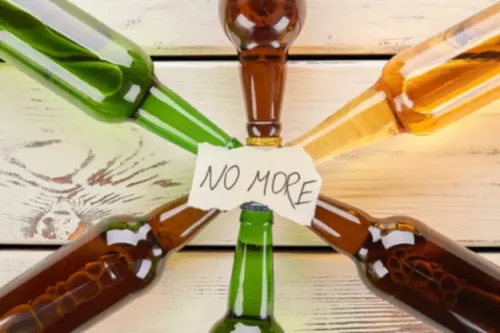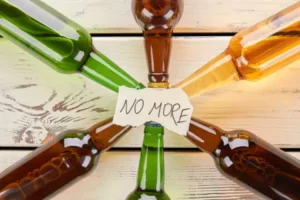Relapse Triggers People, Places & Things Causing Cravings

These are the people who will be there for you, holding you accountable and providing much-needed encouragement when facing moments of vulnerability. There may be people in your life who consistently pressure you to drink or use drugs. Assertively communicate your need for sobriety and establish clear limits. It will help you maintain a safe environment that supports your recovery journey.
Emotional Turmoil
Here we delve into detailed examples of each, providing a comprehensive look at the triggers you might face and strategies for managing them. It requires introspection, patience, and, often, the guidance of a mental health professional. However, the effort invested in understanding and managing these triggers can be a transformative part of an individual’s recovery journey. For individuals in recovery, navigating through complex and challenging emotions is a significant part of their journey.
Your Addiction Doesn’t Have To Define Who You Are.
Boosting mindfulness skills can help you become more aware of the emotions that come up throughout the day. Being more in tune with your feelings can make it easier to both understand what triggers them and find helpful ways to cope. In other words, you’re better off scrapping that getaway plan and preparing yourself to deal alcoholism with any triggers that might come up in your day-to-day life. When the emotional trigger (your partner’s indifference) fired, you’re transported back to that time in your life, when you felt like nothing you did was good enough.

What are Common Relapse Triggers?
This might involve cognitive-behavioral techniques, mindfulness practices, or other therapeutic methods. The goal is to recondition your brain to respond differently, helping you to live more fully in the present. Maybe you notice you find it pretty easy to keep your cool when your boss critiques your work, but the same can’t be said when you feel like your partner doesn’t want to spend time with you. When they first mentioned it, you told them hearing about the infidelity made you uncomfortable.
- They can also build up their coping skills to help them better handle difficult situations.
- As such, every effort must be taken to prevent people in recovery from relapsing.
- Instead, they argue that the emotions that arise from triggers should be appropriately dealt with in therapy, particularly if the feelings and resulting behaviors interfere with daily life.
- Therapists and counselors can provide tools and strategies tailored to each individual’s unique circumstances and triggers.
- Building and maintaining a strong sober support network is crucial in overcoming triggers during your recovery journey.
Try following these feelings back to their origins by thinking back on other situations that made you feel what you’re currently feeling. They might include reminders of unwanted memories, uncomfortable topics, another person’s words or actions, even your own behaviors. Knowing what your emotional triggers are (and how to deal with them) is a key component of good emotional health.
Support & Education
- Triggers are individualized experiences that vary widely from person-to-person.
- Awareness of potential triggers and reaching out to your support system when needed can help overcome the challenges posed by reminders of past use.
- By remaining vigilant and dedicated to your sobriety, you can reduce the risk of falling back into old patterns and maintain your hard-earned progress.
Seeking professional help when faced with challenges during your recovery journey is paramount. Therapy, counseling, and support groups are all great resources to help you on your path to recovery, offering essential tools and resources needed to maintain sobriety. Often a place may trigger a memory of an event, or smelling something, such as a particular cologne, may trigger your memory of a loved relative.
Managing Internalized Triggers

It is perilous for a person in recovery to be around substance-using friends and family. Offering alcohol to a former addict may trigger feelings that urge the individual to use drugs. Recognizing and managing triggers is crucial for anyone navigating the recovery process from addiction. Internal and external triggers can dramatically impact external trigger examples one’s journey toward sobriety.
Internal Triggers

Your usual response to this trigger, which is shutting down, usually only makes you feel worse. Instead, you resolve to start a conversation with your partner next time these emotions come up. Regularly tracking your emotions in a journal can help you recognize specific patterns, such as emotional triggers and times of greater vulnerability. There are several ways to go about addressing the root causes of your emotional triggers, which can help them have less of an impact over time.

Types of Triggers and responses to them
Understanding these risk factors will help you to avoid the potential risk of relapse during or following recovery. Around 40 to 60 percent of people who are recovering from addiction may relapse at least once. Chronic illnesses like addiction often require several rounds of treatment before they can be managed properly, so a relapse shouldn’t be treated as a sign of failure. However, using drugs or alcohol again can have serious consequences, and it can even be fatal.


